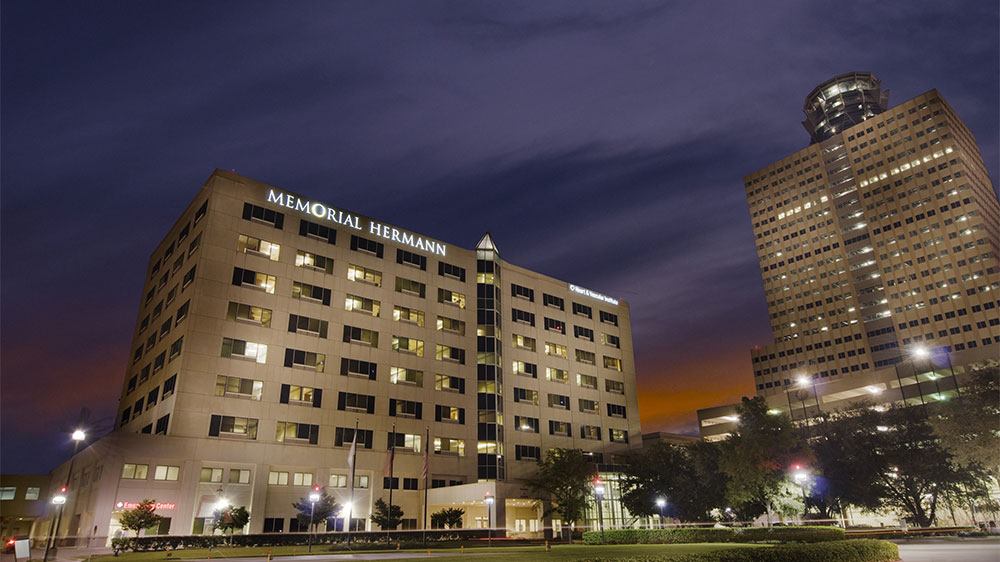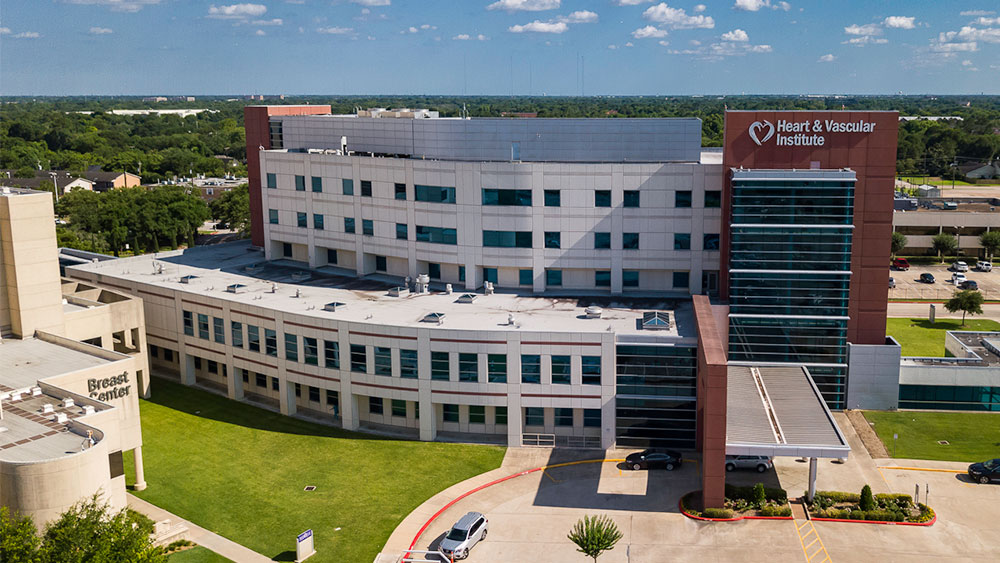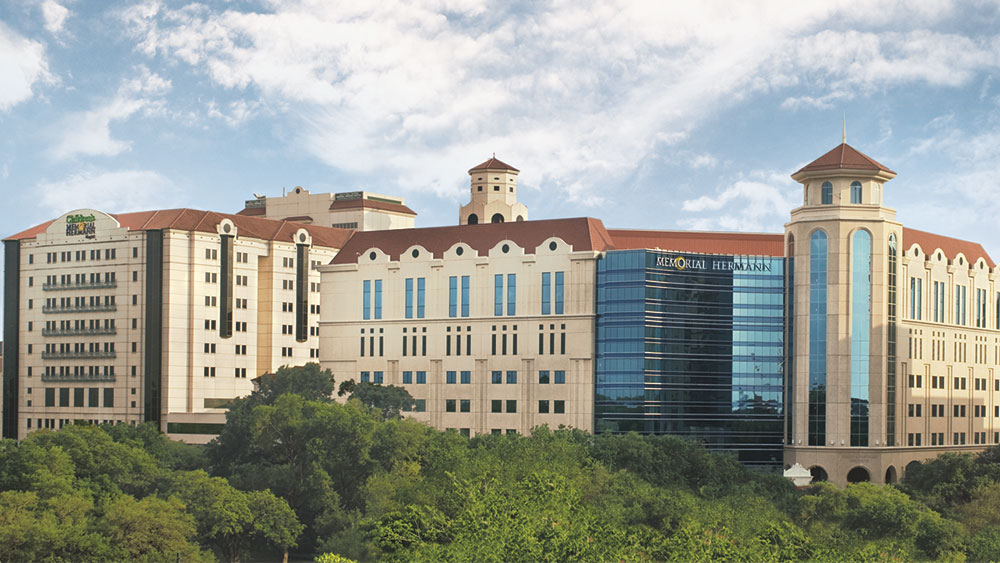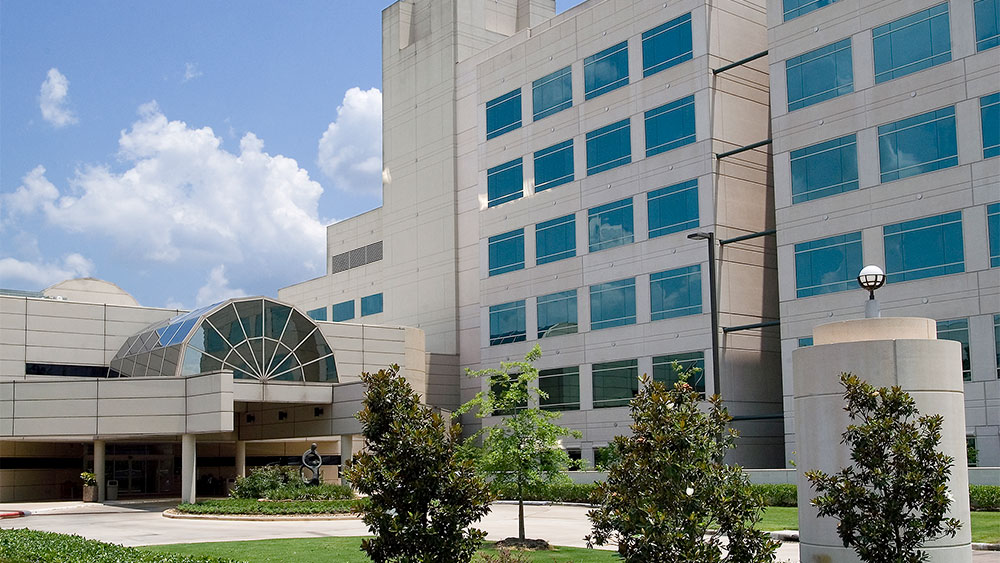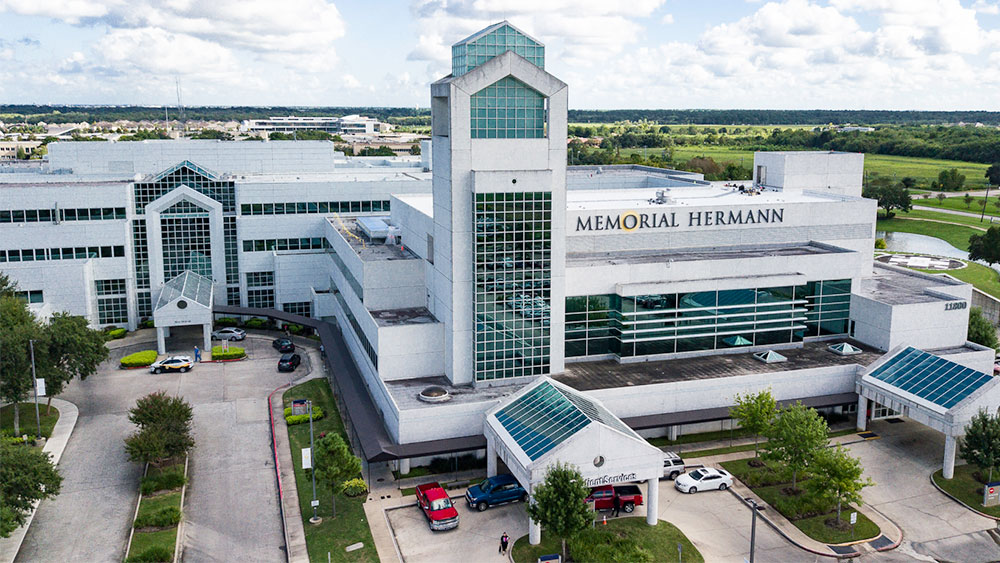According to the Centers for Disease Control and Prevention (CDC), an estimated 12 million people in the United States will have atrial fibrillation (AFib) by the year 2030.
At Memorial Hermann, our affiliated specialists provide a broad range of heart arrhythmia and atrial fibrillation treatment options, from noninvasive treatments to device therapy to minimally invasive procedures. Finding the right treatment for AFib can relieve your cardiovascular symptoms and greatly improve your quality of life.
What is atrial fibrillation (AFib)?
Atrial fibrillation (also called “AFib”) is a type of heart arrhythmia. An arrhythmia is an irregular heartbeat that may be too fast or too slow.
The two upper chambers of the heart are called atria. Blood flows from the atria to the two lower chambers of the heart which are called ventricles. With AFib, an irregular heartbeat prevents blood from flowing effectively from the atria to the ventricles, which may lead to blood clots, stroke or heart failure.
Atrial fibrillation is associated with an increased risk of stroke and heart-related death. Unfortunately, many people do not know they have AFib, because it does not always show symptoms. When symptoms are present, you may experience:
- Irregular heartbeat
- Heart palpitations
- Shortness of breath
- Chest pain
- Fatigue
- Dizziness or lightheadedness
Types of Treatments for Afib
Medications
Many medications are available to treat atrial fibrillation and other types of arrhythmia. These medications are usually blood thinners, or medication to control heart rate or heart rhythm. In most cases, these medications must be taken for the rest of the patient’s life. There are bleeding risks from some AFib medications, and routine monitoring may be necessary.
Nonsurgical Procedures for Atrial Fibrillation
Physicians affiliated with Memorial Hermann perform two types of nonsurgical heart-rhythm treatments: cardiac ablation and convergent procedures.
Cardiac Ablation (Pulmonary Vein Isolation)
AFib is an irregular heart rhythm originating in the pulmonary veins. Specialized catheters with innovative 3-D mapping technology can be used to target and destroy the tissue around the pulmonary veins and eliminate AFib. This is usually an outpatient, same-day procedure, and patients can quickly return to their normal lives.
This procedure corrects an abnormal heart rhythm. It uses energy pulses to change the way your heart's electrical signals flow.
Convergent Procedure
Some patients with long standing or difficult to manage AFib can benefit from a relatively new procedure that is performed simultaneously by an electrophysiologist and cardiac surgeon. The Convergent procedure is a minimally invasive surgical treatment for patients who have not found success with other AFib treatment options.
The Convergent procedure is performed from both inside and outside the heart and creates scar tissue to block abnormal electrical signals and return the heart to a regular rhythm. A cardiac surgeon reaches the heart, under the sternum, through a small incision in the chest or upper abdomen. The electrophysiologist reaches the heart by inserting a catheter into a vein in the groin and guiding it to the heart. Recent studies show that this approach may have better outcomes in select patients.
Device Therapy for Atrial Fibrillation
Physicians affiliated with Memorial Hermann utilize implantable devices to treat patients suffering from atrial fibrillation.
Pacemaker
A pacemaker is a small device (smaller than a matchbox) that is placed under the skin, near the collarbone, to help regulate a patient’s heartbeat. Flexible wires are inserted into a vein near the collarbone and guided to the heart. One end of each wire is connected to the heart and the other end to the pacemaker device.
If the pacemaker detects an abnormally slow heart rate (bradycardia) or the absence of a heartbeat, it emits electrical impulses that stimulate the heart to speed up or resume beating. A pacemaker is often implanted if medications to prevent arrhythmia or control the heart rate result in an excessively slow rate. A pacemaker may also be implanted after atrioventricular (AV) node ablation.
Left Atrial Appendage Closure Device (LAAC)
Patients with AFib may be at a higher risk of stroke caused by blood clots that form in the left atrial appendage (LAA). The LAA is a small pocket (or recess) connected to the upper left chamber of the heart that, in people with AFib, can allow blood to pool and collect and increase the likelihood of a clot forming and traveling to the brain to cause a stroke.
Are there eligibility requirements for left atrial appendage closure devices?
Yes. Your cardiologist and/or electrophysiologist will review the requirements with you to determine if you are a candidate. Here are the criteria:
- Do you have Atrial Fibrillation (AFib) not caused by heart valve problems (non-valvular AFib)?
- Has your doctor recommended that you take a blood thinner for your AFib?
- Can you take Warfarin but need an alternative to long-term blood thinners for one of the reasons below?
- You have a history of serious bleeding while taking blood thinners.
- You have a lifestyle, occupation or condition that puts you at risk for serious bleeding.
- You are taking Warfarin and having trouble with your treatment plan, and a different type of blood thinner isn’t an option for you.
Patients at Memorial Hermann have access to the latest options for left atrial appendage closure devices These are small parachute-shaped devices that permanently close off the left atrial appendage (LAA), a site where clots can form and increase the risk of stroke. The device permanently closes off this part of your heart to keep those blood clots from escaping. Ninety percent of blood clots that come from the heart are formed in the LAA.
Implantation takes about an hour and once the device is implanted, it will not require replacement. You will be given general anesthesia so that you will be asleep during the procedure. The physician will make a small incision in your groin or leg, insert the device into a blood vessel and guide it to the heart.
In addition to reducing a patient’s risk of stroke, the LAA closure device eliminates the need for blood-thinning medications.
Memorial Hermann offers WATCHMAN FLX™ and AMULET™ left atrial appendage closure devices for patients.
Benefits of AFib Treatment
The goal of AFib treatment is to improve patient quality of life and AFib symptoms, prevent stroke, and reduce risk of damaging the heart with long standing AFib. If you have symptoms, like chest pain or shortness of breath, treating AFib can relieve these problems. It is important to treat AFib as quickly as possible. Cases of prolonged, untreated AFib can be difficult to resolve.
Risks and Side Effects
The risks of AFib treatment vary depending on which type of treatment you have. Most medications have bleeding risks. Surgical treatments carry risks including bleeding and infection. It is important to remember that the benefits of AFib treatment usually greatly outweigh any risks associated with treatment.
Recovery After AFib Treatment
Your recovery from an AFib treatment will vary depending on which type of treatment you have. Speak with your physician about your specific recovery timeline and when it is safe to resume daily activities. After some minimally invasive procedures, you may need to take blood thinners or other medications.
AFib treatments often have high success rates, and greatly reduce the risk of blood clots and stroke. Treatment is also helpful in reducing symptoms like chest pain or shortness of breath.
Scheduling an Appointment
Memorial Hermann's affiliated heart and vascular specialists are highly trained in a full range of AFib treatment options. They can assess your condition and recommend a procedure to improve your AFib and help reduce your risk of blood clots and stroke.
Contact Us
Please fill out the fields below and we will contact you, or call (713) 222-2273 for more information.
Healthy Living
A healthy heart begins with healthy habits. Create balance and take charge of your heart health today.
Nutrition
Eat smarter with heart healthy eating tips and recipes. Learn to cut sugars, eat clean and more.
Fitness
Get moving with this guide to heart healthy fitness! Learn how exercise improves your heart health.
